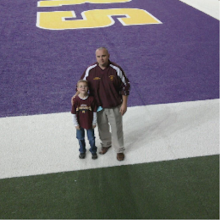Taken from http://dangerouslyirrelevant.org/
As was so aptly said just a few days ago:
It is hard to make an argument that there are many desirable post-secondary educational or career scenarios for current high school students that will not require the use of computer technology on a daily basis. The kids have known this for quite some time now. High school students know that they will almost certainly be using computers in any desirable job that they manage to get after high school. They know that a computer is a requirement for success in today's higher eduction environments. They know that, in the "real world," college students don't write papers in longhand on loose-leaf notebook paper; they know that, in the "real world," people don't create business presentations with markers and paste on poster board or tri-fold displays; they know that, "in the real world," people who engage in any type of research may still occasionally use books, but they conduct the majority of their research using online tools. They know that, "in the real world," bankers do not keep their accounts in paper ledger books, or do their financial forecasting only with the aid of a calculator. Yet high school students are regularly asked to write in longhand on notebook paper, make presentations using kindergarten tools, research mostly using books, and do their calculations on paper. Why should anyone be surprised that they don't find their high school experiences "relevant?"
Do we have the will to integrate digital technologies into students' learning in regular, frequent, and meaningful ways? Are we brave enough to cast a critical eye at the learning tasks that we assign students and ask difficult but necessary questions about their relevance in a technology-suffused, globally-interconnected society? Are we willing to look at what passes for 'learning' and 'teaching' and 'schooling' on a day-to-day basis in this country and acknowledge that the vast majority of it is mind-numbingly boring and disengaging? Can we recognize that we're infantilizing our young adults instead of enabling them to be empowered learners, thinkers, and doers?
We have opted not to create schools as places where children’s curiosity, sensory awareness, power, and communication can flourish, but rather to erect temples of knowledge where we sit them down, tell them a lot of stuff we think is important, try to control their restless curiosity, and test them to see how well they’ve listened to us. (pp. 58-59)
He also stated that:
[M]ost of what [our students] experience during school hours passes over them like the shadow of a cloud, or through them like an undigested seed. They may be present in the classroom, but they are not really there. Their pencils may be chugging away on the worksheets or the writing prompts or math problems laid out for them, but their intelligence is running on two cylinders at best. They pay some attention to what their teacher happens to be telling them, but their imagination has moved elsewhere. (p. 1)
We could have learning spaces that emphasize hands-on inquiry, critical thinking, collaboration, and authentic, "real world" problem solving instead of teacher lecture, rote practice, and fact regurgitation. We could have learning spaces that spark students' imaginations and enable them to be interested, engaged learners instead of dulling them into bored compliance. We could have learning spaces that students would choose rather than classrooms that we force students to attend. Shame on us that we don't.
